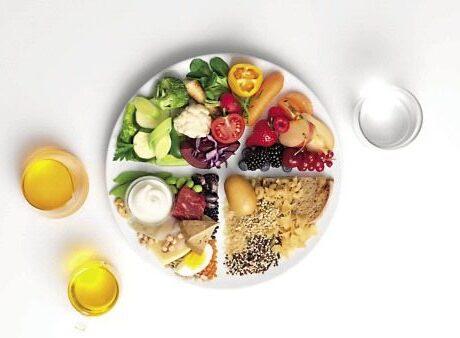On the threshold of a paradigm shift in food supply – Food policy analyst Réka Szöllősi was the guest at the September meeting of Chain Bridge Club
First Réka Szöllősi told in her retrospective that consumer protection aspects increasingly replaced technological and food safety standards in the European Union between 2004 and 2010: salt reduction, trans-fats, public health product taxes…
This article is available for reading in Trade magazin 2024/10

Réka Szöllősi
food policy analyst
elelmiszervilag.hu
These changes have also had their effect felt quickly in Hungary, in particular with the tightening of rules on product labelling and communication. Then the food industry was gradually confronted with the challenge not only of the rules of the European Union’s agricultural policy, but also of the government, which saw it more as a sector to be regulated than as a partner. The Hungarian food industry was at a competitive disadvantage all the time, while the necessary self-examination on sustainability issues wasn’t carried out. According to EY research, 51% of domestic business decision-makers haven’t even heard of ESG-related legislation.
No change without transforming food supply
One of the best-known environmental scientists in the world, Johan Rockström – he created the Planetary Boundaries model – stresses that we mustn’t only address fossil fuels, but also transforming the food system, otherwise environmental goals won’t be met. The challenge for the food industry is that 50% of the food produced is already made in environmental conditions that exceed the safe range. Therefore a company must consider all ESG aspects and take risk mitigation measures, not just focus on carbon emissions. Sustainability reporting by large international companies now includes biodiversity, land use and other environmental factors, so the food industry needs to adapt to this complex approach. Based on data from 2022, food will account for 41% of the environmental footprint in Hungary, in line with the EU average, meaning that food is the biggest environmental burden on individuals.

Austrian dietary recommendation
Protein transition is also necessary because of land use
It would be essential to reduce the intensity of livestock farming, as land use is a key issue. Agriculture occupies 50% of the earth’s habitable land, 80% of which is reserved for livestock. The solution is to return part of this land to nature, thus restoring biodiversity and moving towards a plant-based diet. Réka Szöllősi highlighted a British example that illustrates the need for protein transition in Europe: “A small free-range egg farm, previously uncompetitive in the poultry industry, switched to the production of mushrooms for culinary use. The same buildings in which poultry had been reared allowed marketable scale production for mushroom growing. A world-famous chef assists in the process, who teaches consumers how to turn mushrooms into dishes like beef steaks”. In parallel with the plant-based alternative, the market for hybrid food products is also growing. A product consisting of 60% beef and 40% pea-based vegetable protein has recently appeared on the shelves of Lidl stores in the Netherlands. A recent Eurobarometer survey reveals that 31% of EU citizens already eat less meat today than they did a year ago.
Offsetting isn’t enough
Green communication by Hungarian food companies isn’t really in line with current legislation. Companies need to collect data and transparently demonstrate how and to what extent they contribute to sustainability. It is important for companies to focus on their biggest environmental impacts and to communicate relevant information to consumers, for example through life cycle analysis. Réka Szöllősi cited Danone’s almond drink as a good example: the manufacturer focuses on reducing water use by using rainwater. In contrast: offsetting – when a company doesn’t reduce its own emissions but plants trees, for example – is no longer sufficient. Companies must first curb their own impacts and only then can they compensate for the remaining emissions through offsetting. Transparency is essential. The purpose of ESG reporting isn’t to comply with legislation, but to actually implement a company’s sustainability strategy. //
Related news
Landmark Vote Positions Helsinki as a Plant-Based Policy Frontrunner
🎧 Hallgasd a cikket: Lejátszás Szünet Folytatás Leállítás Nyelv: Auto…
Read more >Lidl Magyarország wins Top Employer award once again
🎧 Hallgasd a cikket: Lejátszás Szünet Folytatás Leállítás Nyelv: Auto…
Read more >Lidl is building a new administrative and logistics centre in Straubing
🎧 Hallgasd a cikket: Lejátszás Szünet Folytatás Leállítás Nyelv: Auto…
Read more >Related news
Innovations, success stories and awards on the same stage
🎧 Hallgasd a cikket: Lejátszás Szünet Folytatás Leállítás Nyelv: Auto…
Read more >NAV: Women’s Day inspections begin
🎧 Hallgasd a cikket: Lejátszás Szünet Folytatás Leállítás Nyelv: Auto…
Read more >









